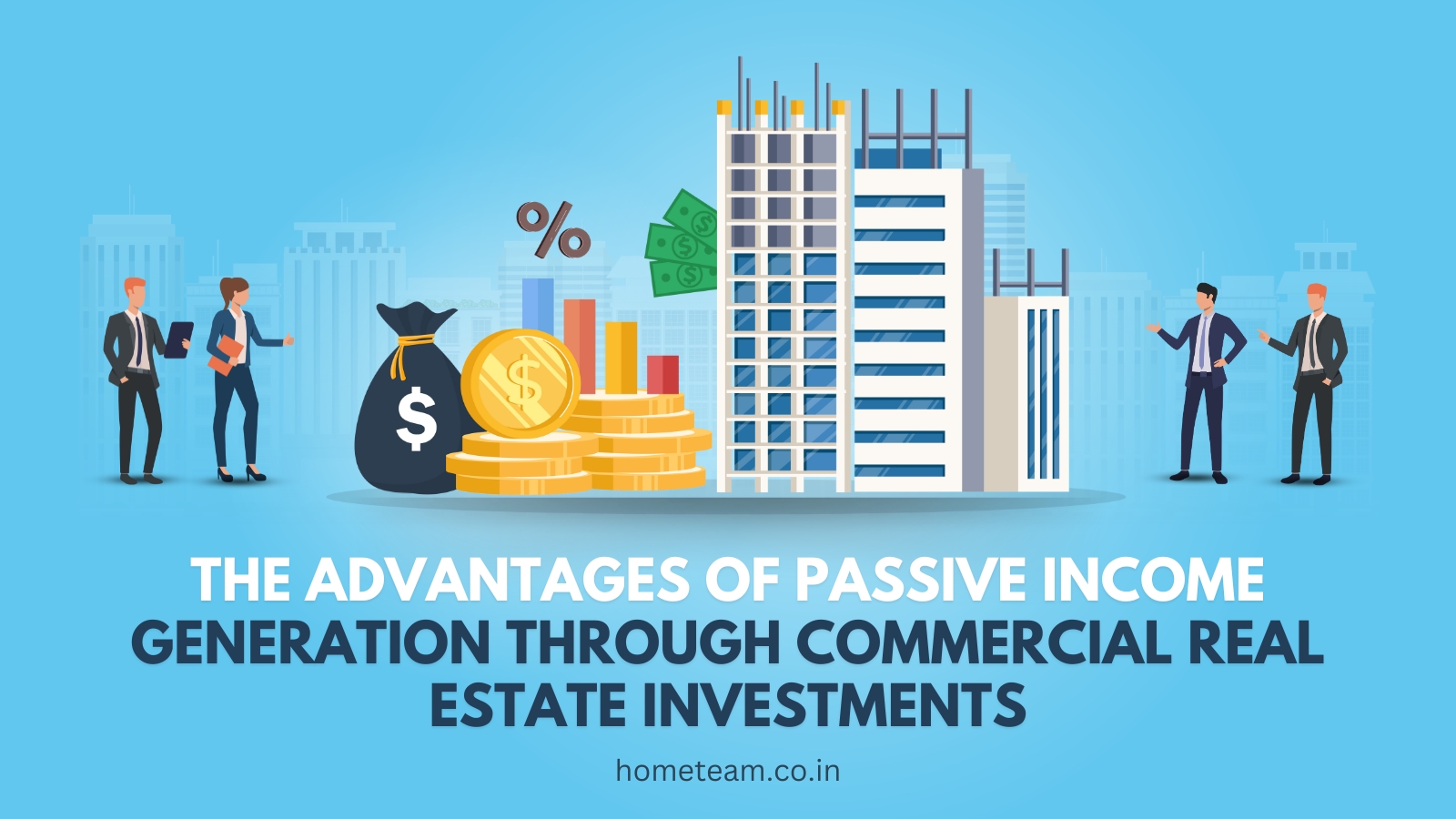The Advantages of Passive Income Generation Through Commercial Real Estate Investments
Investing in commercial real estate offers unique advantages for generating passive income, making it an attractive option for retirement planning. Here's why:
- 1. Stable Income Streams: Commercial properties, such as office buildings, retail centers, and industrial warehouses, often generate higher rental income compared to residential properties. Leases for commercial spaces tend to be longer, providing investors with stable and predictable income streams.
- 2. Diverse Tenant Base: Commercial properties attract a diverse range of tenants, including businesses, retailers, and industrial tenants. This diversity helps mitigate the risk of vacancy, ensuring a steady flow of rental income even during economic downturns.
- 3. Potential for Higher Returns: Commercial real estate investments offer the potential for higher returns compared to residential properties. With careful selection and management, investors can benefit from appreciation in property value and increased rental income over time.
- 4. Professional Property Management: Commercial properties often require professional management, which can be advantageous for passive investors. Property management companies handle day-to-day operations, tenant relations, and maintenance, allowing investors to enjoy the benefits of real estate ownership without the hassle of hands-on management.
- 5. Inflation Hedge: Commercial leases typically include provisions for rent escalation, allowing rental income to adjust with inflation. This feature acts as a hedge against inflation, preserving the purchasing power of rental income over the long term.
- 6. Tax Benefits: Commercial real estate investments offer various tax advantages, including depreciation deductions, mortgage interest deductions, and the ability to defer capital gains through like-kind exchanges. These tax benefits can enhance cash flow and overall returns for investors.
- 7. Portfolio Diversification: Including commercial real estate in your investment portfolio provides diversification benefits, reducing overall portfolio risk. Commercial properties have low correlation with other asset classes, such as stocks and bonds, making them an effective diversification tool.
Passive income derived from commercial real estate investments offers a myriad of advantages that make it an attractive option for investors looking to diversify their portfolio and secure long-term financial stability.
- 1. Stable Cash Flow: Commercial properties often feature long-term lease agreements with tenants, providing a steady and predictable stream of rental income. Unlike residential properties where vacancies may occur more frequently, commercial leases typically have longer terms, resulting in consistent cash flow for investors.
- 2. Appreciation Potential: In addition to regular rental income, commercial properties have the potential for appreciation in value over time. As the property's market value increases due to factors such as economic growth, inflation, and property improvements, investors can benefit from capital appreciation when they choose to sell the property.
- 3. Diversification: Investing in commercial real estate allows investors to diversify their investment portfolio beyond traditional stocks, bonds, and mutual funds. Commercial properties have a low correlation with other asset classes, making them an effective hedge against market volatility and economic downturns.
- 4. Tax Benefits: Commercial real estate investors can take advantage of various tax benefits to maximize their returns. These benefits may include depreciation deductions, mortgage interest deductions, property tax deductions, and the ability to defer capital gains taxes through like-kind exchanges or 1031 exchanges.
- 5. Inflation Hedge: Commercial real estate investments have historically served as an effective hedge against inflation. As the cost of living and prices rise over time, rental income generated from commercial properties tends to increase, providing investors with a built-in inflation hedge.
- 6. Control Over Value: Unlike publicly traded securities where investors have limited control over the underlying assets, owning commercial real estate gives investors direct control over the property's value. Through proactive management, property improvements, and strategic leasing strategies, investors can enhance the value of their investment and maximize returns.
- 7. Passive Ownership: Despite the term "passive income," investors can still maintain a degree of passive ownership in commercial real estate investments. By hiring professional property management companies to handle day-to-day operations, maintenance, and tenant relations, investors can enjoy the benefits of passive income without the burden of active management.
Overall, the advantages of passive income generation through commercial real estate investments make it an appealing option for investors seeking to build wealth, achieve financial independence, and secure a stable income stream for the future.
FAQs
Passive income is earnings derived from rental property, limited partnership, or other enterprises in which a person is not actively involved. Commercial real estate investments generate passive income through rental payments from tenants leasing space within the property. This income stream requires minimal day-to-day involvement from the investor once the property is leased.
Passive income from commercial real estate investments offers several advantages, including stable cash flow, potential for long-term appreciation, tax benefits such as depreciation deductions and capital gains treatment, portfolio diversification, and a hedge against inflation. Additionally, commercial properties often have longer lease terms and higher rental rates compared to residential properties, enhancing the reliability of passive income streams.
Investors can generate passive income through commercial real estate by purchasing properties such as office buildings, retail centers, industrial warehouses, or multifamily apartment complexes and leasing them to tenants. Alternatively, investors can participate in real estate investment trusts (REITs), crowdfunding platforms, or syndications, allowing them to pool capital with other investors to acquire income-producing commercial properties.
Before investing in commercial real estate for passive income, it's essential to evaluate factors such as location, property type, market demand, tenant quality, lease terms, property management considerations, financing options, and overall investment objectives. Conducting thorough due diligence and seeking guidance from experienced professionals can help mitigate risks and maximize returns.
While commercial real estate investments offer attractive passive income potential, they also entail risks such as economic downturns, market fluctuations, tenant vacancies, lease defaults, property maintenance costs, and regulatory changes. Investors should assess these risks carefully and implement risk management strategies such as diversification, proper asset selection, and proactive property management to safeguard their investment portfolios.










